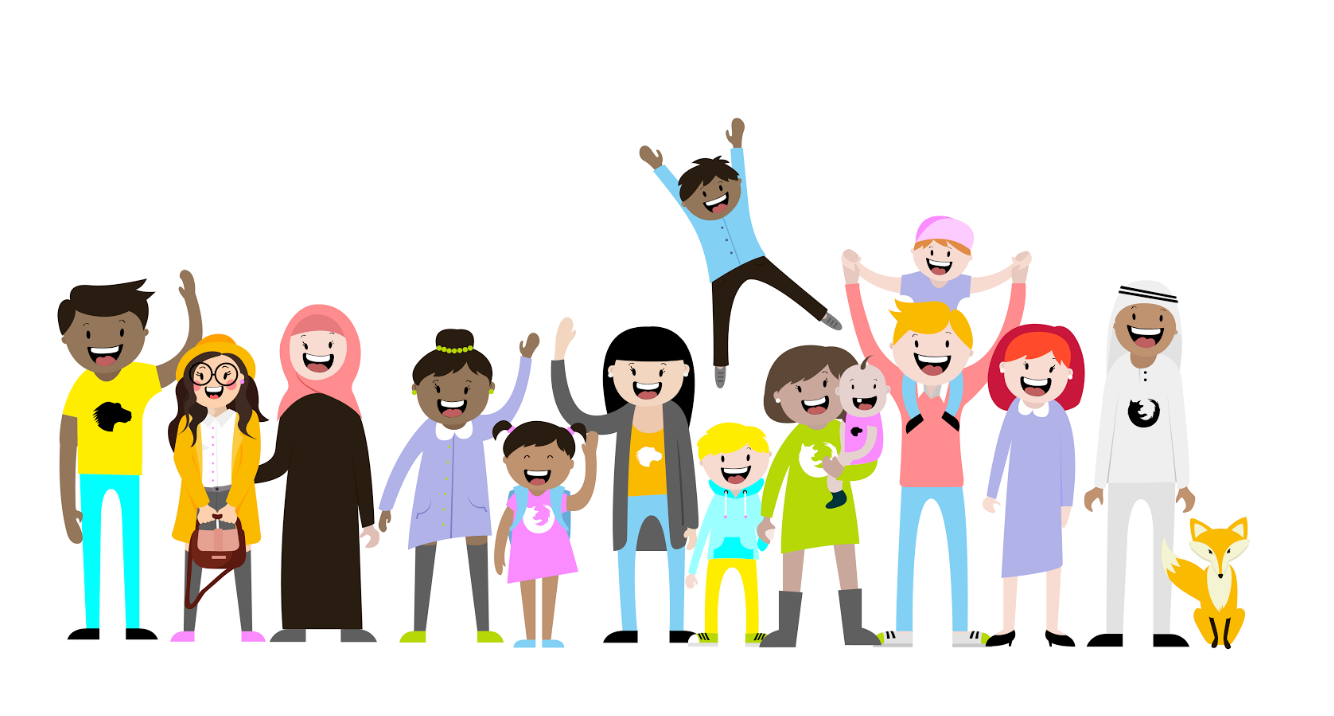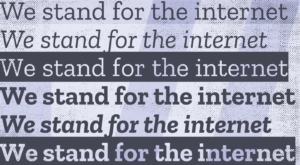Rare as it is to update a brand identity in the open and invite everyone to participate, it’s even more uncommon for an organization to share a core part of its marketing strategy. In the corporate world, information about the target audience for a brand for instance, is often a closely held secret. Here, Mozilla’s head of audience insights, Venetia Tay, pulls back the curtain to reveal the global audience we’ve identified for Mozilla Following our open approach, she invites you to play a part in our audience research as well.
“I am not required to make the world a better place.” -Reality Bites 1994
“I can’t keep quiet.” -MILCK 2017
The 1990s and 2000s were framed by a clear sense of ambivalence, self-interested technological growth, wanton materialism and projected idealism. We’ve entered a new world – a world with a tangible surge in people who approach their affiliations and consumer decisions carefully, with a great deal of thought; a new world of people who care. Whether it’s a focus on environmental issues, civil rights, or sustainable sourcing, individuals’ commitment to clear values and beliefs are driving their behavior and they are holding brands, companies and organizations to the same set of standards.
From recent boycotts of #deleteuber, #BoycottBudweiser, #NoNetflix to the success of Small Business Saturday, Everlane, Seventh Generation, Mary Kay and Ben & Jerry’s, we’re witnessing a trend in human behavior that aligns day-to-day decision making with consumers’ moral compasses. This group of consumers is willing to invest research time, manage inconveniences, pay a premium to support the organizations that align with their personal values and even reject brands whose values do not align. In a 2015 Nielsen global survey, 66% of respondents say they’re willing to pay more for products and services that come from companies who are committed to positive social and environmental impact. They’re making a conscious choice to put their money, their influence and their actions where their heart is. As a result of technology, these Conscious Choosers can not only vote with their purchases, but also hold brands responsible on social media – this public megaphone increases consumers’ power and forces companies to be more socially accountable.
At Mozilla, we recognize that this cohort of Conscious Choosers are critical participants in our movement for Internet health. We believe that the Internet is a global public resource and we’re committed to keeping it open and accessible to all. We need help in this work, the way World Wildlife Fund needed help 30 years ago; we need the public to understand that the Internet is at risk and worth fighting for.
Hypothesis
This idea of the “Conscious Chooser” consumer started with a hypothesis. We believed there was a cohort of people who exhibit signs of “everyday activism” in their offlines lives. They vote, recycle, read labels, are involved their community, and can see a connection between their individual actions and the overall “health” of their community. However, we also believed that these same people may not yet be applying these values and behaviors to their online lives.
Research
Our initial research in Germany, Brazil and the US reinforced our hypotheses. The notion of “conscious choosing” emerged as a common behaviour in 20-30% of Internet users we surveyed. We found that Conscious Choosers are hungry for information and details, and are willing to invest time to make decisions that align with their values. They believe in the power of the collective and that their influence can go beyond just their own personal buying power to impact others’ decisions and the world around them as well. We also met people who struggle to connect their offline lives with their online lives but are open and eager to find ways to do so. As as we suspected, Conscious Choosers see the Internet as a platform for their connections and causes but find it hard to translate their values into practice online because of the internet’s intangible nature.
An internal research study shows that amongst the respondents who are familiar with the work Mozilla does to support the Internet, including web literacy, policy and advocacy programs and technology innovations, 69% are more likely to be engaged users and supporters of our Firefox browser (compared to respondents who have no knowledge about our activities, only 33% are engaged). In other words, the values and behaviors of a public interest “parent” company are a differentiating factor for the product brand. Based on this insight, we also believe that Conscious Choosers are a growth market for our Internet Health movement, as well as products from Mozilla, like our Firefox browser.
Implications
We recognize that our consumers exist in an imperfect environment—where there is asymmetry of information, financial and social constraints and inconsistencies in human behavior, both offline and online. We are curious to explore why, understand the reasons for inconsistencies and define the thresholds. We also recognizes that “personal values” can vary from country to country and culture to culture, as seen with research from World Values Survey. We need to explore further to understand what values are important in different countries and cultures.
At the heart of it, we believe that Mozilla’s target consumer audience is community-minded, driven by their personal values to take action, and these values influence the products and services they use, the purchases they make and organizations they support. And we believe that this group is not unique just to Mozilla, but represents a growing segment of important consumers, users, and advocates that other organizations will be interested in learning more about, especially as brands are expected to take more of a political stance by savvy consumers.
In the upcoming months, we will be embarking on further research – through quantitative studies, ethnographic studies as well as participatory session across the globe – firstly in the US, Germany,Taiwan and then will look to expand to other geographies over time. Staying true to our open source roots, we will make our process, insights and findings open and available to all.
Please help!
We want to invite individuals, communities and organizations to participate through a variety of activities. For example, you can support us by being a fixer or a guide in-field, or recommending people we should talk to or letting us interview and run participatory exercises with you or attending an interactive workshop to add to the wealth of knowledge. To help us off the ground, we would love to connect with you so send us an email if:
- You are a researcher and would like to get involved
- You are an advocate for Mozilla and want to support our discovery process
- You are actively are making choices and supporting causes, but technology might not be your thing
- You are skeptical but would like to see a non-profit, independent corporation succeed
- You are rooting for Mozilla because you think a healthy, widely used web matters
If you like to engage, have questions about our research approach or would like to receive updates, please email audience_insights@mozilla.com.
Watch this space to learn more about where all of the resources will be made available.











Eridani wrote on